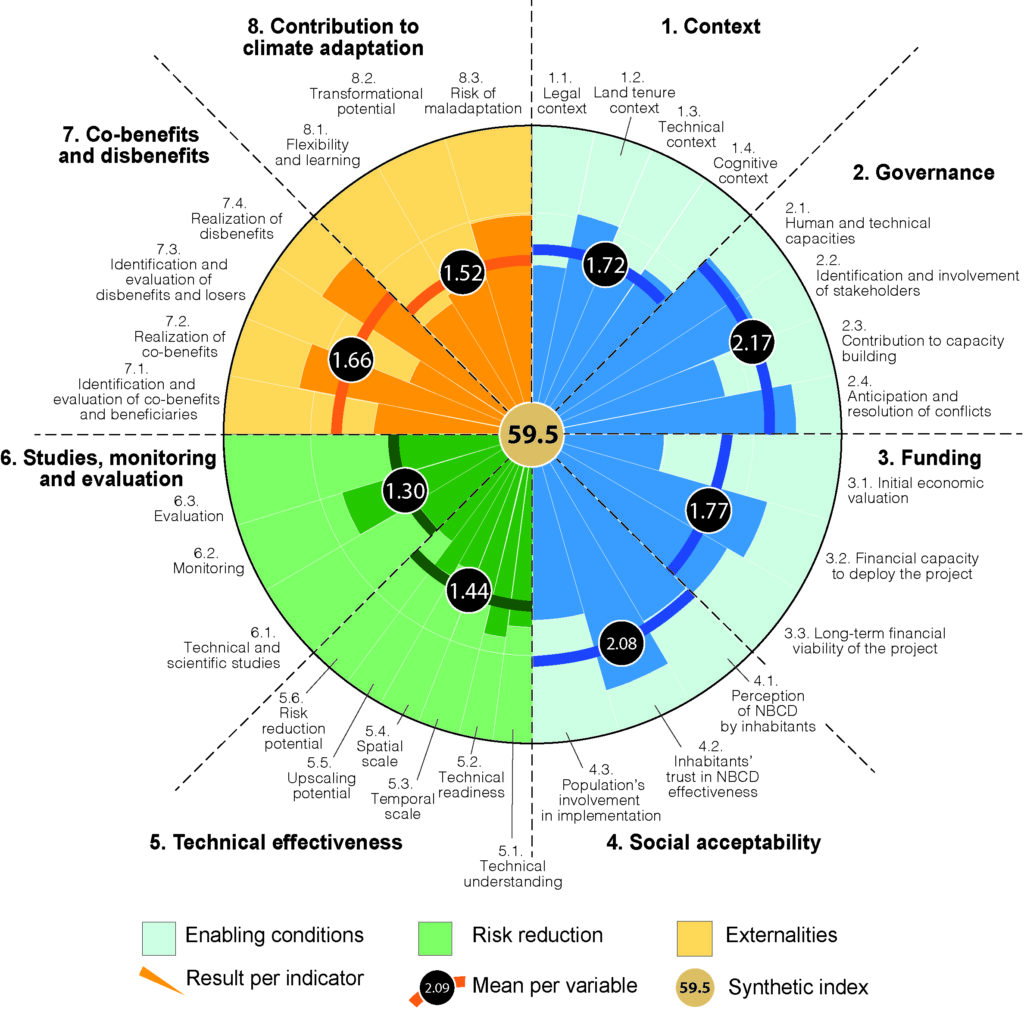Assessing Nature-based Coastal Defense: Application to French Overseas Tropical Island Territories (WP3 ; LIENSs)
Duvat V., Hatton I., Burban L., Jacobée A., Vendé-Leclerc M., Stahl L., 2025. Assessing Nature-based Coastal Defense. Scientific Reports 15: 16798. https://doi.org/10.1038/s41598-025-96744-7
Nature-based Coastal Defense (NbCD) is increasingly used to reduce climate risk, because it is considered effective, inexpensive and cost-effective, easy to implement, and a no-regrets option. This study challenges this positive framing of (NbCD) through the analysis of 23 projects in French overseas territories, using an ex-post assessment protocol considering three main dimensions: (1) enabling conditions (context, governance, funding, social acceptability), (2) risk reduction (technical effectiveness; studies, monitoring and evaluation), and (3) externalities (co-benefits and disbenefits; overall contribution of the project to adaptation).
The results highlight that 80% of NbCD projects aimed at reducing coastal erosion; 47.8% were implemented in natural or rural areas; 87.1% included restoration actions; 82.6% targeted one single ecosystem; with 51.7% of them targeting beach/dune systems; 47.8% were led by public actors; and all relied on multiple funding sources.
Performance indices (max.: 100%) range from 39.4% to 77.2%. The highest scores concerned governance and social acceptability, and the lowest scores risk reduction. No project included an evaluation of risk reduction and was calibrated for future risk. Barriers to effectiveness include altered environmental conditions in urban-industrial areas (which caused the failure of ecosystem restoration actions) and the lack of integration of NbCD projects into a broader adaptation strategy. We noted an under-estimation of staff costs and difficulties to secure long-term funding. Barriers to implementation finally included the lack of political support and of population involvement.

